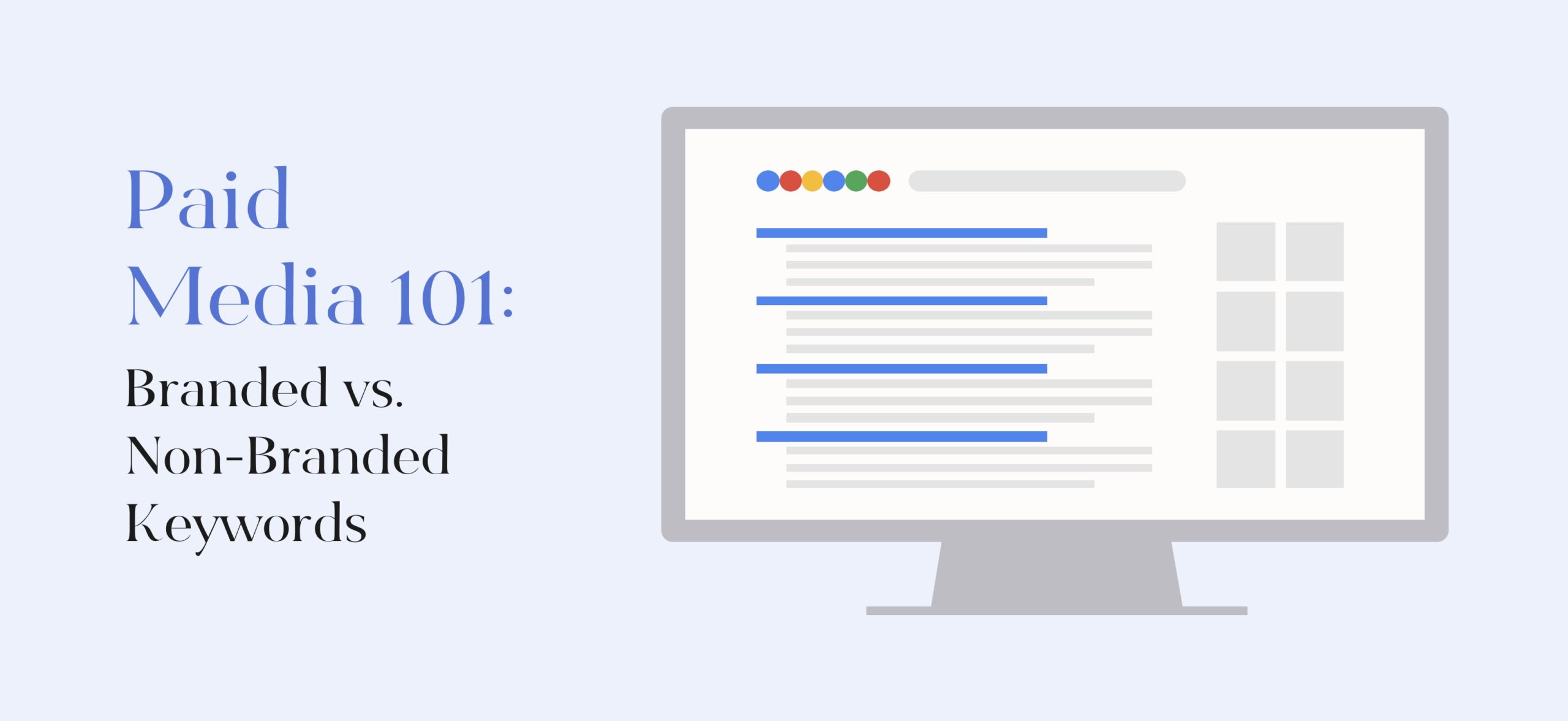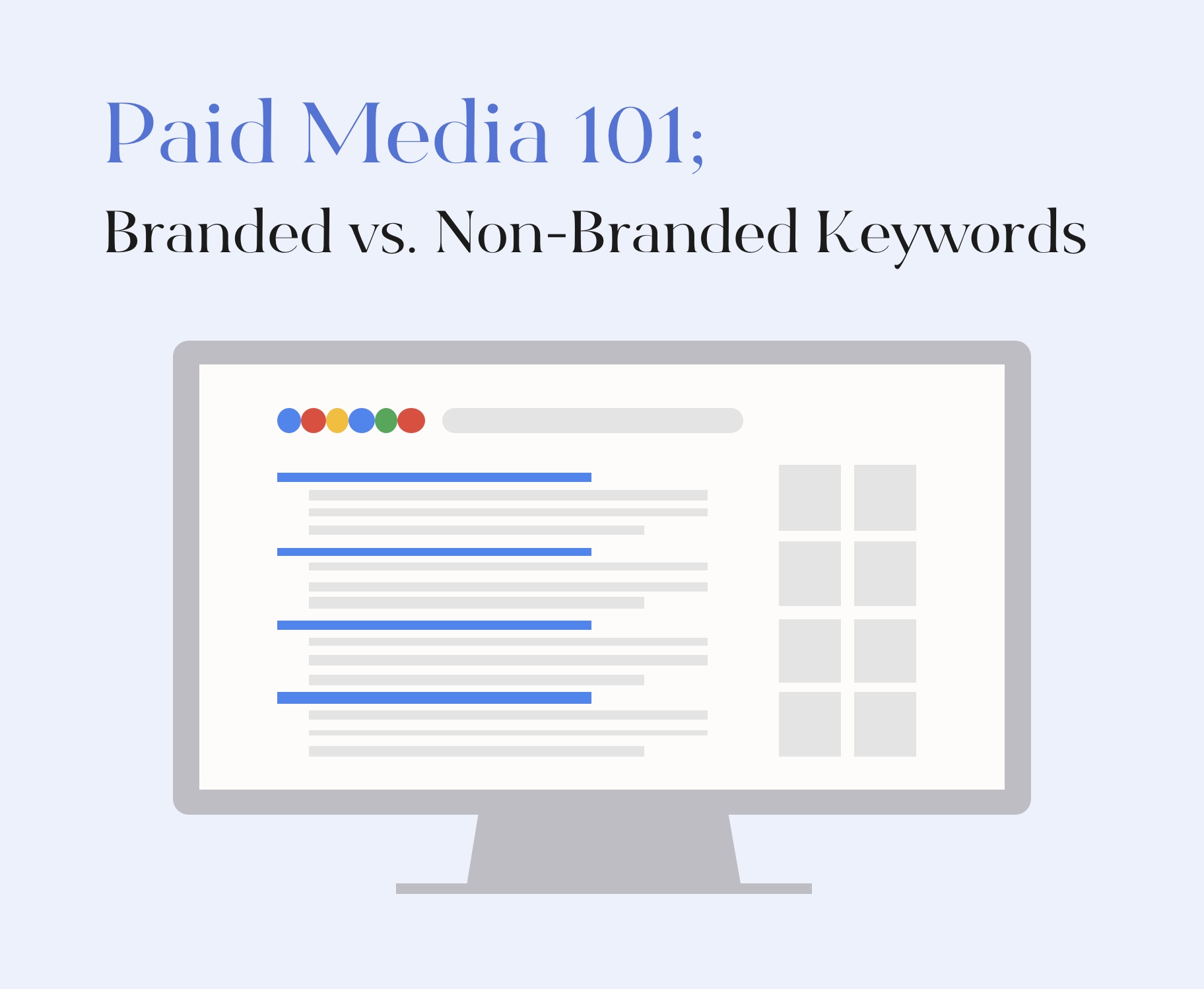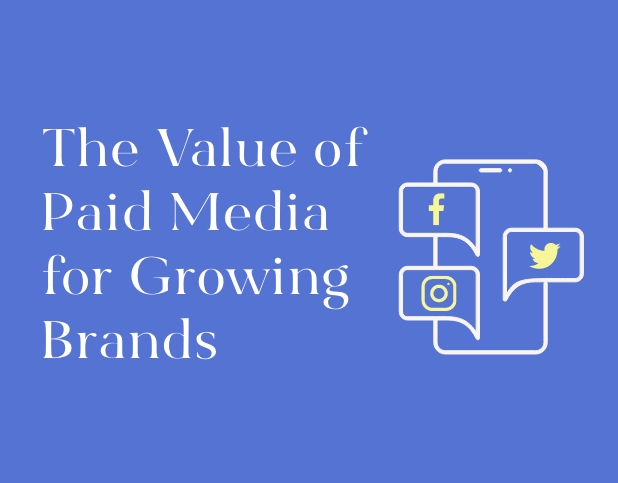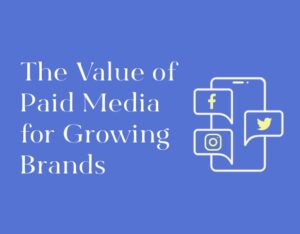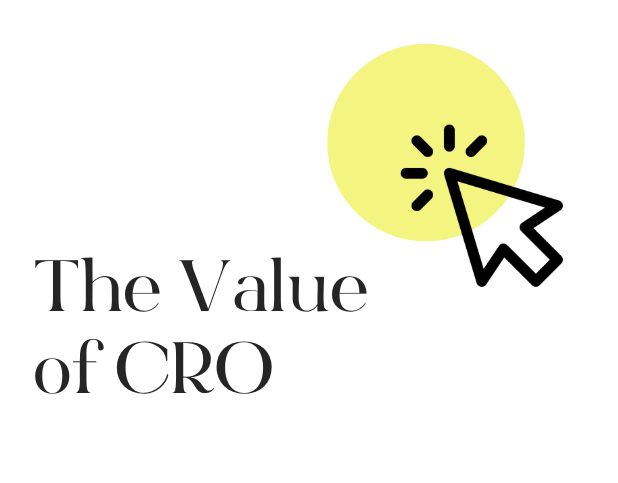Non-branded, branded, competitor keywords, what does it all really mean? We have this question come up often from our current and prospective clients and we can’t express enough the importance of understanding what these terms mean for your brand’s paid search campaigns and strategy.
First off, let’s talk about what exactly Paid search means and is before diving into how it works. Paid search ads can be run on almost all search engine platforms, the most popular ones are Google and Bing. Whenever you type something into Google, for example, “hypoallergenic jewelry”, Google will show a sea of results based on search relevance. This is where Paid search ads come into play. Paid search is a great way to drive bottom-of-funnel conversions and capture existing intent. Now we will dive into the different approaches to paid search.
Branded Keywords:
Branded keywords are keywords that include your brand or business name in a search query. By targeting branded keywords in your paid search strategy, you are able to reach people who already know of your brand and products. An example of this would be “BuzzShift”.
Non-Branded Keywords:
Non-branded keywords are keywords that do not include your brand or business name. Non-branded keyword targeting allows a brand to gain visibility and appear in searches that don’t directly reference your brand. An example of this would be “digital marketing agency”. Non-branded keywords are a great way to reach high-intent new customers.
Competitor Keywords:
Competitor keyword targeting is typically a more expensive approach but allows for brands to show their ads when a person searches for their competitors. An example of this would be “MuteSix”. Depending on your marketing goals and industry, targeting competitor keywords could be beneficial in capturing more customers.
Now that we understand the differences between these keywords, we can better understand why they are essential for a well-rounded paid search strategy. Branded keywords are important because they allow people to find your brand directly. In contrast, non-branded keywords allow your brand to gain more visibility by reaching potential customers who are looking for the products or services that your brand offers. To understand if your brand is ready to launch paid media, or to fully optimize your paid search efforts, reach out to learn about how the BuzzShift team can help grow your brand today.
About BuzzShift
BuzzShift is a digital growth strategy agency with a focus on mid-market, scaling, purpose-driven DTC Brands. By combining the ideologies of branding, performance marketing, and retention agency, we are able to create memorable experiences with measurable results, and build long-term success for our clients with scalable, sustainable growth. Learn more about BuzzShift.
